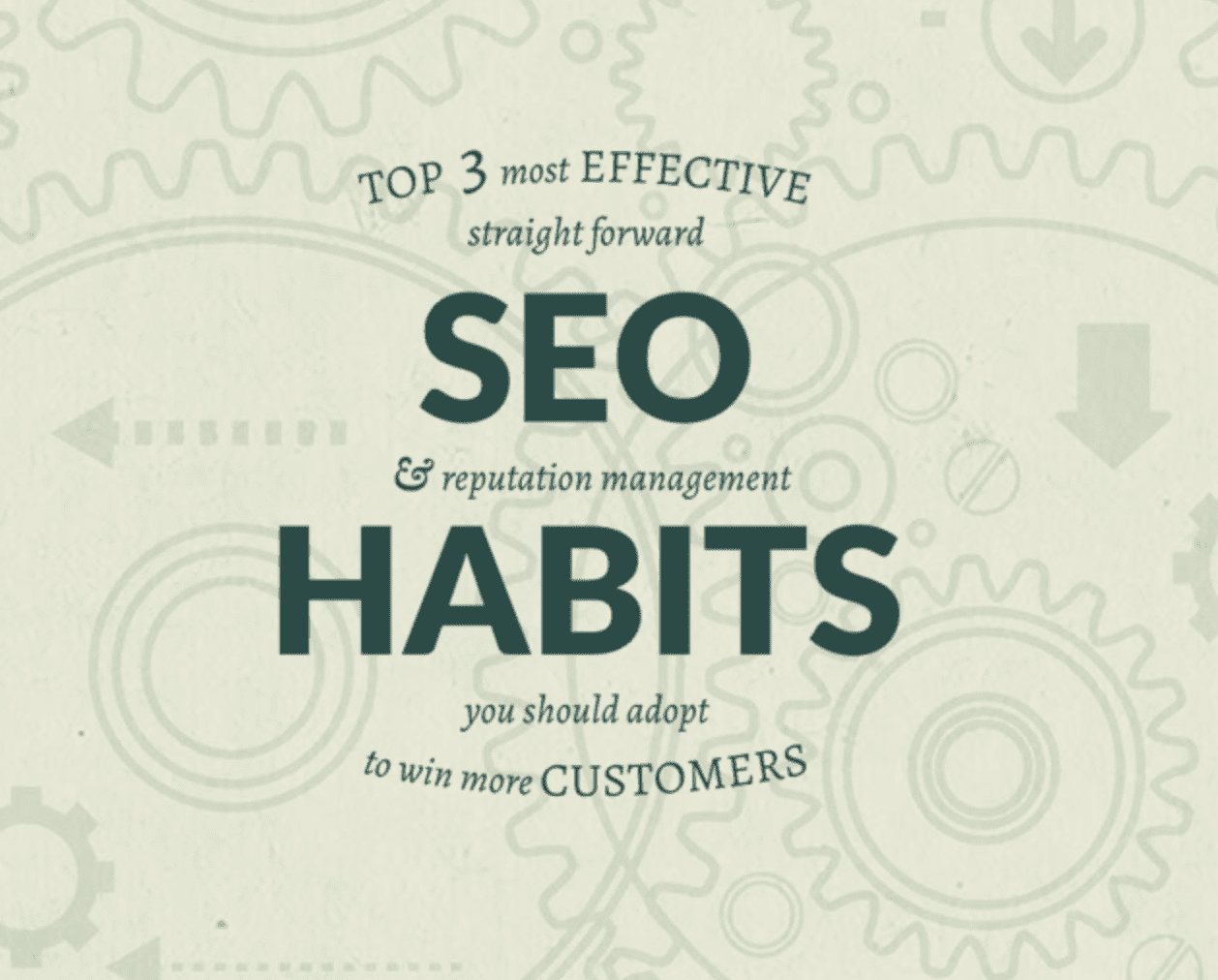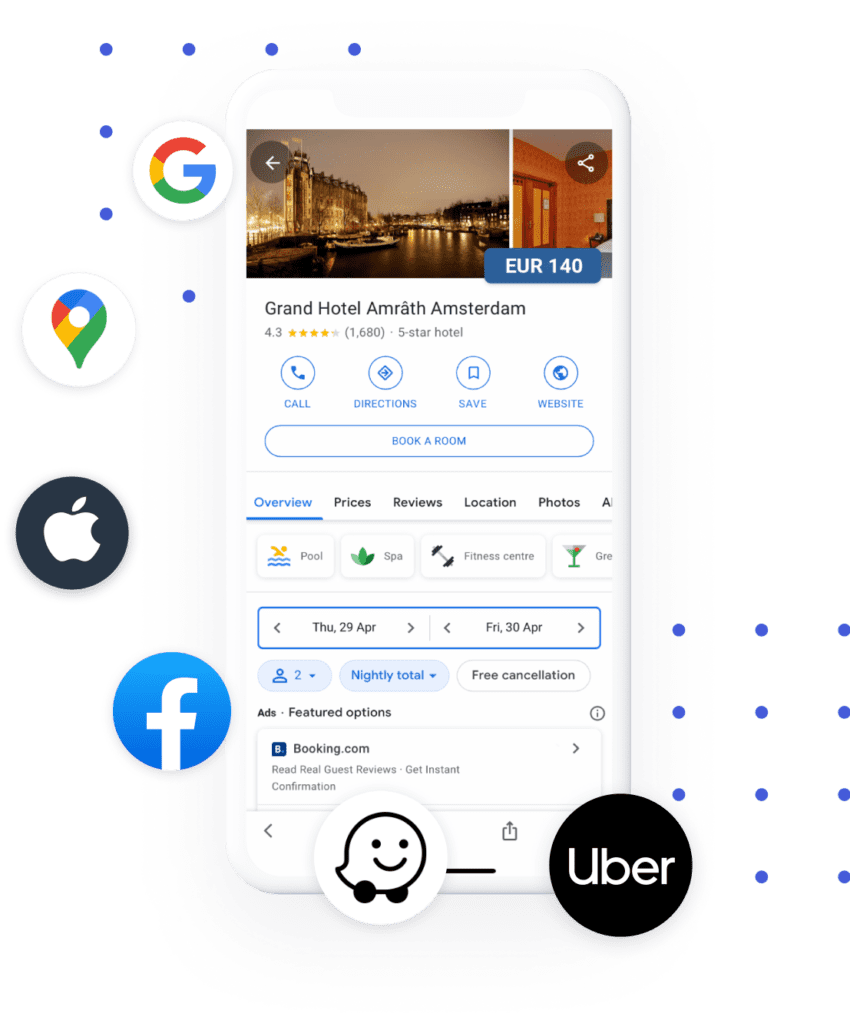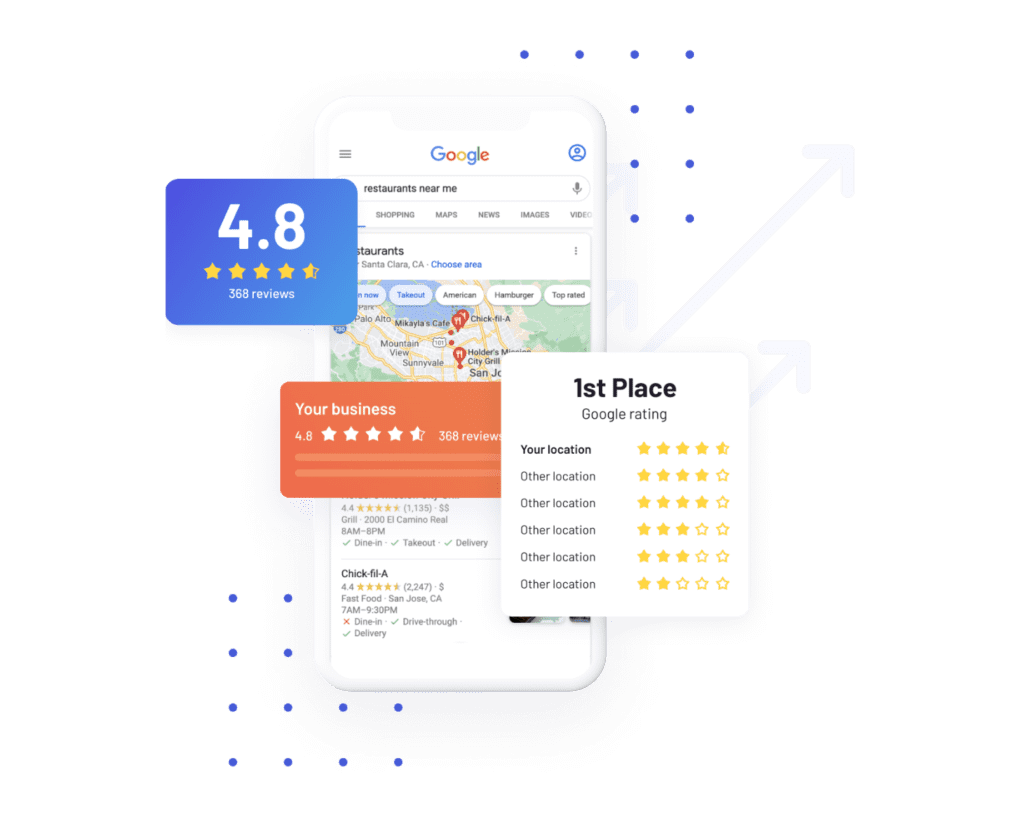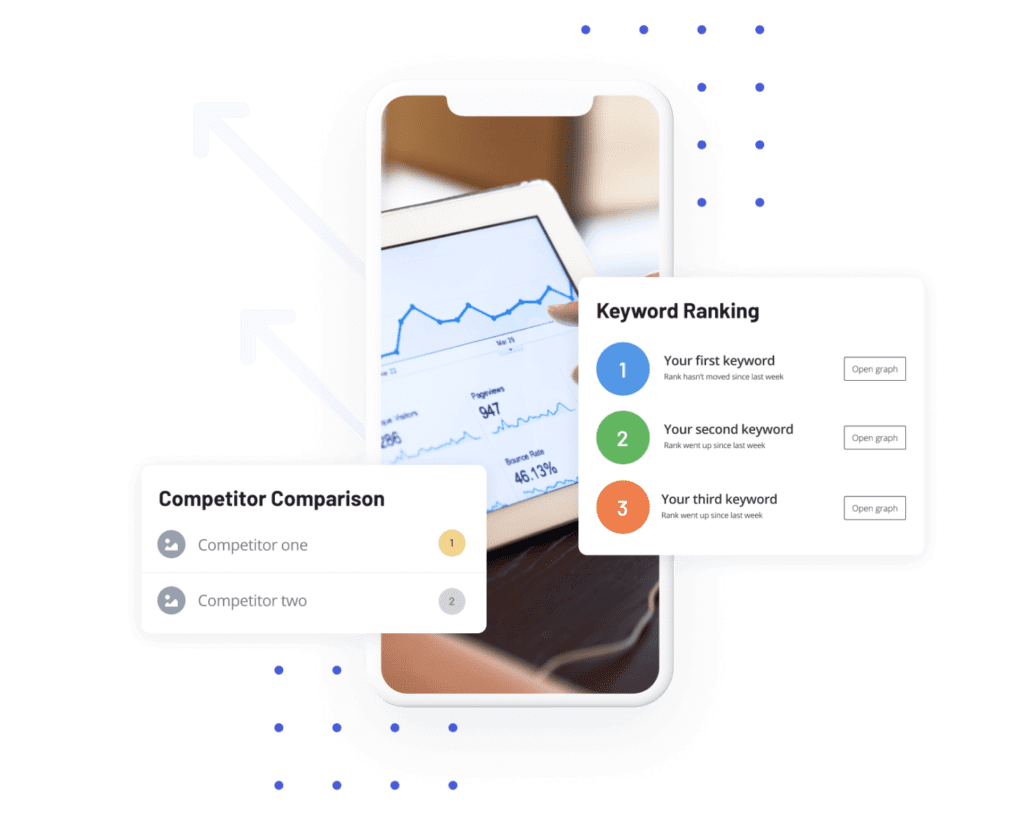approx 8 minute read
There really is a lot to think about.
Google uses over 200 (known) factors in its algorithm. And they experiment all the time.
In fact, in 2018 they made over 3000 improvements. That’s almost 9 times a day, on average.
And so keeping your website finely tuned as the search landscape evolves is an ongoing exercise.
Like painting the Golden Gate Bridge.
But it’s not only your website that needs attention of course.
What about all the ‘off-site’ maintenance?
Mentions of your business on other websites and platforms. Company listings and citations to keep on top of. Broken backlink management. Third-party review sites.
It’s challenging to keep up.
So we’ve put together our top 3 most effective SEO habits that you should do regularly.
This ‘regular’ part is important. Because ongoing maintenance, the consistent fine-tuning, gives your website the best chance of topping the charts.
And we all know chart-toppers get more hits.
What’s more, this list of SEO TLC habits features actionable insights anyone can do. You don’t need to be a developer. You can do it yourself.
Let’s get started.
Where you at?
When more people can find you, more people can choose you.
Where do you appear?
Completed and consistent information everywhere will automatically lead to more calls, website traffic, and navigation requests.
But that’s not all. Working on your company listings will mean winning in two events. Individual sprint and relay.
That’s because being listed in places where customers may find you is a good thing.
But also because search engines find comfort in consistent information related to your business.
So you give confidence to both human beings and bots alike. Score.
You could say it’s like killing two birds with one stone. But we don’t condone animal cruelty, so.
Listings matter because:
- 90% of local searches happen online and
- 76% of those result in an action within 24 hours.
So it’s important to be easily found on all relevant directories and platforms.
Not only the obvious ones but also platforms for GPS, voice search in your car, etc.
Voice search is becoming more and more popular. In fact, 52% of people use voice search while driving.
So it’s about being in the right place at the right time. But it’s also about user experience.
One of the easiest ways to upset a potential customer is to display inaccurate opening hours.
No one enjoys a lengthy excursion only to be left disappointed when the shutters are down.
You’ll get negative reviews from people yet to even step foot inside the establishment or try what’s on offer.
More on reviews next. But for now, accuracy. Quality AND quantity. But mostly quality.
Because accurate info also improves your ranking.
This means you get noticed by more people, get more clicks and more customers.
What can I do to improve my listings?
Start with your own spreadsheet of data.
Include everything these directories like to display about you.
- (NAP) Name, Address, Phone Number
- Website
- Social Media Accounts
- Opening Hours
- Business Category
- Service Areas
- Company Description
- Delivery Options
- Payment Options
- Accessibility
- Photos
To name a few!
This becomes your template. Everything else should match it. Identically. Even the CaPitaLis’ation.
Read more about this in the NAPs section of our Local Search guide.
Then, you can keep on top of your business listings by searching for where your business appears.
Adding new listing and citations. And regularly auditing everything to make sure the information is up to date.
This is especially useful on Google, where third-party suggestions can be accepted if not dealt with in time.
What they sayin’?
Managing your reputation online is vital.
Your customers will form views about you from the reviews they read.
In fact,
93% of customers read online reviews before buying a product.
It’s more than just a popularity contest. These votes of confidence really do affect the bottom line.
Typically, a 1-star increase in rating on review sites leads to a 5-10% revenue increase.
Finally, you probably won’t be surprised to know that achieving better reviews leads to better rankings.
Especially when it comes to Google’s local search.
And it doesn’t end there.
Search engines also pay attention to the:
- Number of reviews
- Star rating awarded
- Sentiment of comment
- Keywords in comment
- Whether or not you reply
- Sentiment of replies
- Keywords in replies
Get more reviews
So one of the first things we can do is ask. Get in touch with your existing customers and see if they’d be happy to leave a review.
Or have emails, printouts, posters, and signage asking for reviews.
Creating a link and sharing it is easy. Check out the ‘reviews’ section of our local search guide for detailed steps on how to encourage more reviews.
Channel the sentiment
Why do you think people leave negative reviews?
It’s not always because of a cold sausage, or the receiving the wrong item.
Because it’s often not what has happened, but how it was dealt with.
This means you sometimes get a chance to put things right.
Here is where ‘review channeling’ comes into play.
You could ask customers if they had a good or bad experience.
If they click ‘good’ then you can direct that feedback towards a review site.
If however, it’s ‘not so good’ then perhaps this particular feedback might be better directed to customer service.
Where someone can step in and make things right.
Intercepting any grumbles before they are made public.
Respond to reviews
It makes a lot of sense to regularly reply to reviews.
Not just for Google, of course. But rather to show your customers you care. Especially if the review was a negative one.
Hiccups happen. It’s often how you handle it that counts.
Sure, potential customers will see the reviews but they will be equally as impacted by your response (or lack of!).
And every so often, a well-crafted empathetic response will see the rating actually increased by the author.
Marketing insights
Sentiment can also deliver a lot of insight for your business.
One smart marketing move is to scour reviews for insightful nuggets you can implement in your business.
What positive things are people saying? Use this language in your marketing copy.
What are the negative points? Use this feedback to calibrate the experience you provide.
The real hack here is to not only read (and respond) to your reviews/ But you should check your competitors also.
Maybe don’t respond to theirs though!
Monitoring this will give you a head start when positioning your place in the market.
What do you do better than others? What areas could you improve?
What can I do to improve my online reputation and improve reviews?
- Proactively request more reviews
- Channel responses towards the best destination
- Monitor your reviews across all platforms
- Respond to all reviews
- Read the reviews of you and your competitors
- Use the insights within your business
Does it work, tho?
So you’ve got the website content. But is the website in good shape?
A solid foundation of technical SEO is the cornerstone of any optimization effort.
It helps search engines make sense of your content.
It ensures your visitors have a good experience using your site.
Did you know,
88% of consumers are unlikely to return to your site if they have a bad user experience.
Presumably, the other 12% just have no choice.
Ongoing monitoring and maintenance are essential for a well-oiled website.
Keeping track of onsite errors and offsite movements. Updating indexes and submitting sitemaps. Fixing page errors, bugs, and broken backlinks.
It’s a full-time job if you don’t know where to look. Well, it’s often a full-time job even when you do!
Then there is keyword analysis. Everything in SEO starts with this.
What relevant, high rewarding keywords and key phrases do you want your business to show up for?
After all, how can you hit the target when you don’t know what you’re aiming for?
How are performing now? How does this stack up against your competition?
Only by keeping tabs on this range of data can you stay one step ahead.
Get it right and you’ll gain more customers through your website, increase traffic and offer a great-looking and fast experience for your visitors.
Making your site technically and structurally easy to view for search engines will help improve your online presence.
Again, dual reward for the same activity.
Two birds, one song.
What can I do to optimize my website?
Crawlability
Make sure your website is indexed and submit a site map to the search engines. Ensure search engines can effectively crawl the entire website.
Fix issues
Eliminate technical SEO issues. Be sure to fix any bugs and errors that appear over time. Explore internal links to make sure they’re not broken.
Security
Ensure your website is kept safe with SSL, the latest updates, and secure passwords.
Monitor
Monitor any backlinks that link to your website and request that they’re updated accordingly.
Keywords
Check what keywords you rank for and compare this with your competition.
Compare
Compare the cost of paid advertising to see if that could be a suitable alternative to get more sales. Or just feel smug at the amount you’re saving with your organic efforts.
Get help
Ask us for a free website audit.










